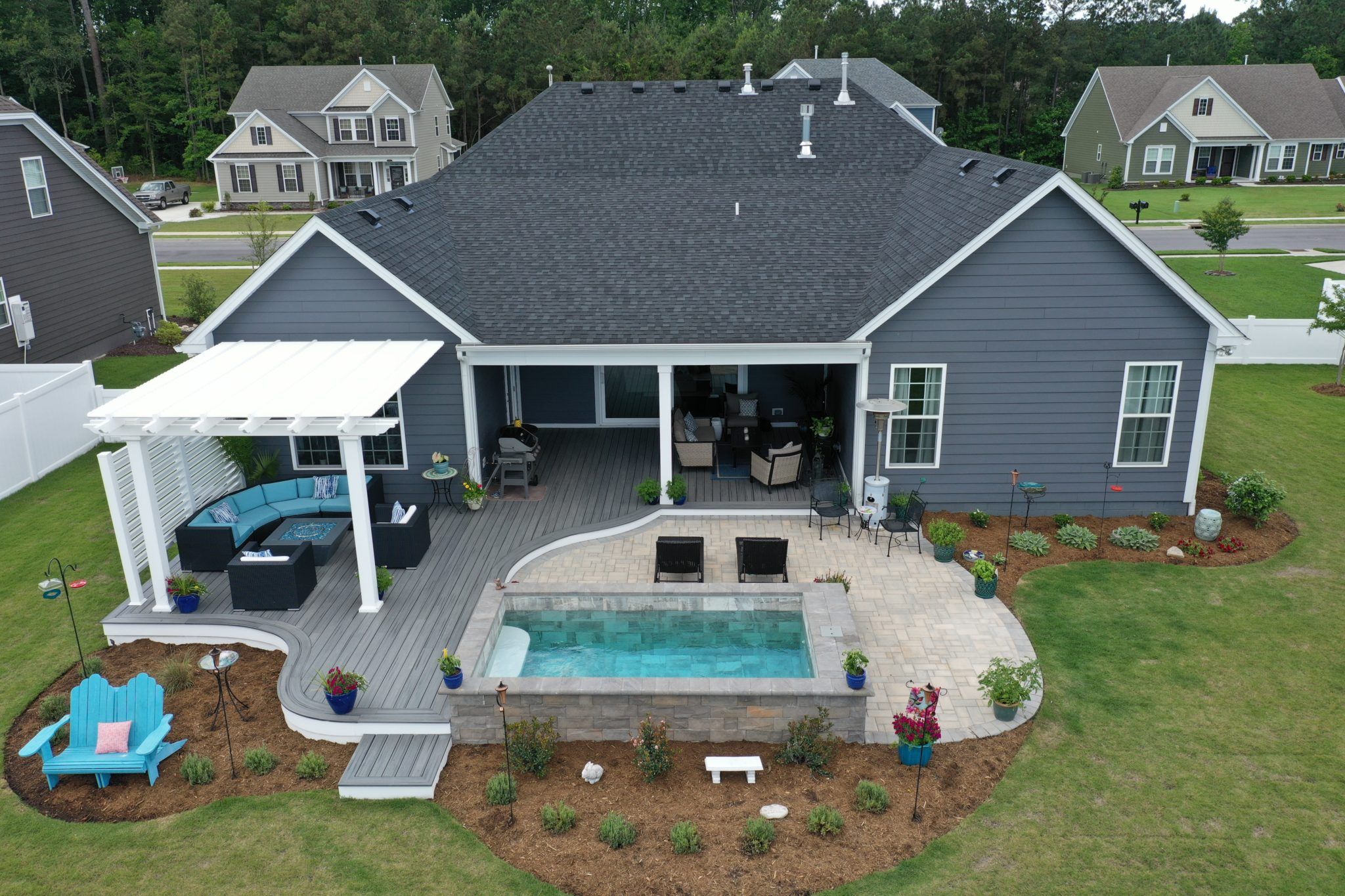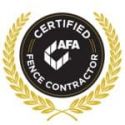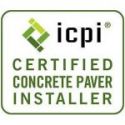The difference between Fiberglass Pools and Concrete Pools

When the weather becomes warm and sunny, you start thinking about wanting to dive into water and have a swim or take a short dip just to beat the heat. You might also think about how now is the perfect time to build your in-ground pool.
When you think about having a swimming pool at home, automatically, a concrete in-ground pool is usually thought of first. Concrete pools are the most commonly installed type of pool at home because they are very customizable and can maximize your yard’s space.
Fiberglass pools come in second in terms of popularity. Some people may find fiberglass pools a little intimidating because the mold is ready-made, and it looks expensive. However, fiberglass pools are more cost-effective and are faster to install than other types of pools.
But what is the best option for your home? Let us break down the main differences between fiberglass pools and concrete pools.
Cost and Maintenance
The costs of a concrete pool will depend on the materials you use, how long the installation takes, and how you customize the pool. Depending on what kind of materials you use, a 12×24-foot concrete pool installation costs around $50,000 to $60,000, including the labor costs for site excavation, the attachment of tubings, pumps, reinforcing bars, and finishing materials for the pool surface such as paint or sealants. Labor costs for pouring concrete would cost around $2,500- $3,000. Excavation costs another $10,000. Other additional expenses could include the price of a water heating system, area fencing, or decking.
Since fiberglass pools are ready-made, the overall expenses are a lot smaller than that of a concrete pool. A 12×24-foot fiberglass pool installation costs around $45,000- $70,000. This also includes the labor costs, the one-piece shell, ladders, tubings, and pump. However, this usually already includes the cost for a water heating system and walkway, depending on your installer. The fiberglass shell costs around $12,000-$20,000, depending on the type of the shell and the upgrades. The labor for the excavation and area preparation costs around $10,000-$20,000. The remaining $10,000 is for the decking and/or fencing and other additional personalization of the area. Since fiberglass pools already have a smooth gel surface, it does not need sealants and other additional surface finishing.
These price estimates are only for the initial costs done by professionals. DIY may be a lot cheaper, but it also has a lot of risks.
In the long run, the concrete pools will need more care and maintenance to be kept in good condition.
Comparatively, fiberglass pools need minimum maintenance. Because the shell is constructed of two layers of resin- one being waterproof and the other to strengthen the mold- topped by a smooth gel coat, it is heavy-duty and helps avoid algae’s growth on its surface.
Concrete, on the other hand, needs constant care and frequent maintenance. The surface of the pool will need to be cleaned weekly. Additionally, concrete pools need to be acid washed every five to ten years, depending on how fast the algae growth is on the surface. That is an additional cost of around $500-$1,000 every ten years, not including the daily cleaning materials and labor costs. Furthermore, when the layer of the concrete has cracks, the growth of algae also increases. With this, you need to cover the gaps with plasters or resurface the whole pool surface.
Since fiberglass pools avoid the growth of algae on the pool’s surface, it minimizes the need for chemicals for maintenance. Concrete pools need plenty of chemicals to clean the pool. Chemicals for fiberglass pool maintenance would cost around $150-$200 every year, while chemicals for concrete pool maintenance costs around $700-$800 a year. That is a difference of approximately $5,000 every ten years.
Installation
The installation of in-ground pools is a complex process, so do-it-yourself is not advisable, especially with concrete pools.
Concrete pools need detailed planning and labor. It needs formwork and rebars inside the excavated land to form the desired shape of the frame. To increase the concrete’s overall durability, the concrete will need to be mixed on-site at the pouring time. Wet-mixed concrete is more porous, which makes them more fragile. If you don’t have enough people working at the same time, concrete pools can take weeks or months to complete.
On the other hand, fiberglass pools take only one to three weeks to be installed, depending on size and complexity. Fiberglass shells are factory-made, which makes them extremely quick and easy to install. After the hole is excavated, you only need a sand or concrete base before putting the one-piece shell inside. The digging and preparation can take about a week. The remaining weeks will be for the decking or other additional customization of the pool.
Appearance and Surface
Since fiberglass pools have pre-made molds, you cannot customize the shape of the pool according to your liking, and you have limited choices for its shape. The excavated area must adjust to the shape of the mold. Since the molds are transported from the factories by road, they can only have a maximum of 16 feet in width, which is as wide as the roads.
With concrete pools, your choice of shapes is endless. It’s as customizable as customizable can get. If you aim for a stylish and unique, or a really deep swimming area, concrete pools are what you need. If you have some unique structures in your yard that you want to surround with the pool, it is totally okay.
Fiberglass has a smooth gel coat finish that comes in different colors and “textures” to make them more stylish. The gel coat makes the surface extremely smooth, similar to a bathtub. This lessens the strain on the feet of the people swimming and avoids causing scratches on the body. Some molds already have anti-slip textures to keep people safe from injury.
There are three types of concrete pool finishes: plaster, pebbles, and tile. The plaster is inexpensive, but it can cause scratches on your skin. Pebbles are also affordable and they look unique. However, the bumps of the pebbles can make it difficult to walk on and slightly painful after an extended amount of time. Tiles are the best finishing for concrete pools since they come in different designs, sizes, and textures. Tiles can be quite expensive depending on the type of tile you use and the amount of surface area in your pool. It also will take longer to install because they are placed tile by tile.
Durability
The durability of both fiberglass and concrete pool’s are dependent on the construction method of the outside of the pool structure.
The fiberglass shell is stronger despite being thinner than the concrete structure. Because it is made of the same material as bathtubs, sinks, sunroofs, and even airplanes and helicopters, they are reliable to last a long time without damage. The only factor that makes it easily breakable is that the outside base comprises sand or concrete, which gives it a higher chance of cracking when the ground shakes during an earthquake.
The concrete pool is also tough but is prone to damage. The concrete mix needs to be well-made for it to last longer. When the concrete is not mixed correctly, there is a greater chance of the surface cracking and forming more algae. Additionally, because of the concrete’s alkalinity, the water pH increases, so you will have to clean it with muriatic acid. The constant acid cleaning over time can damage the concrete’s surface, which will make it brittle.
Final Thoughts
Fiberglass pools and concrete pools are quite different. But saying one is better than the other would be unfair since pools are not a one-size-fits-all thing. You have to understand how the processes and the future maintenance needs to decide which pool best suits your yard.
Please contact Solid Structures to answer any of your pool questions or for a free consultation to transform your backyard. We proudly serve Virginia Beach, Chesapeake, Norfolk and beyond.

Written By Scott Prunty
Scott Prunty is the president of Solid Structures. Throughout his 15 active years in the Design-Build Outdoor Living industry, he has earned various certifications in the areas of ICPI Residential, ICPI Advanced Residential, ICPI Commercial, PCIP, and is an ICPI certified instructor.
- 15 years actively in the Design-Build Outdoor Living industry
- ICPI certified Instructor
- ICPI Residential, ICPI Advanced Residential, ICPI Commercial, and PCIP certified
- Imagine Pools certified installer
- Fluidra certified installer
- Trex Platinum Pro
- Avid saltwater person, boating, diving, surfing, fishing








Outdoor Living Redefined. Solid Structures offers full service design build capabilities all under one roof.
179 S Birdneck Rd
Virginia Beach, VA 23451
Serving Areas
- Chesapeake, VA
- Suffolk, VA
- Portsmouth, VA
- Norfolk, VA
- Virginia Beach, VA
- and surrounding areas
Hours of Operation
- Mon - Fri: 8:00am – 5:00pm
- Sat - Sun: Closed
-
Weekends by Appointment Only
Outdoor Living Redefined. Solid Structures offers full service design build capabilities all under one roof.
© 2025 Solid Structures - All Rights Reserved.











